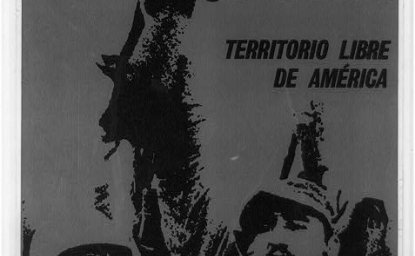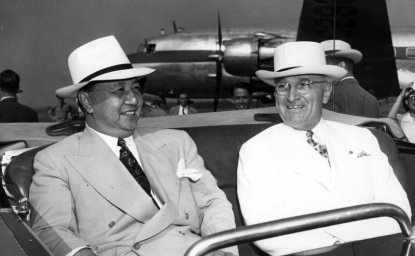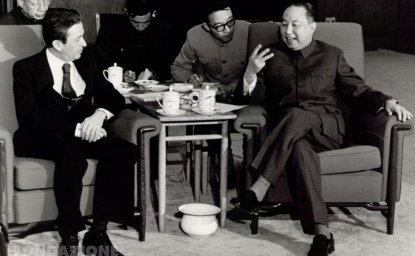In the late 1980s, Vietnam faced a catastrophic economic situation caused by the massive military and manpower costs of the country’s ongoing war in Cambodia and the ongoing conflict with China along border, steadily decreasing Soviet military and economic assistance as the result of the Soviet Union’s own deteriorating economic situation, the stringent U.S. embargo against trade with Vietnam, and Vietnam’s own draconian Marxist-Leninist economic and internal security policies.
Seeking a new path forward, in December 1986 the Vietnamese Communist Party’s 6th National Party Congress approved a policy resolution aimed remedying the country’s desperate economic and social problems. The new policy was called “renovation” [đổi mới], and it called for changing Vietnam’s economy from a totally Marxist state-run economy to a market economy along the lines of the semi-free market economy being developed in Deng Xiaoping’s China.
Among the many changes this new “renovation” policy required was the need to encourage foreign investment and tourism and to allow Vietnam’s own citizens greater personal freedom to travel. This required making significant changes to Vietnam’s strict “wartime” immigration/emigration regulations, changes that were met with some skepticism and resistance within Vietnam’s Public Security apparatus.
In response to this resistance, in 1988 the Vietnamese Ministry of Interior’s internal journal, Public Security Science Studies (which was classified as “For Internal Distribution Only”) published an article explaining and defending the changes in immigration/emigration policy required by the new Party “renovation” strategy.[1]
The 1988 article asserted that while the Vietnamese Communist Party’s current position was that most overseas Vietnamese and most foreigners were “good people”, and that very few of them were “spies”, there were still a number of Public Security officers who did not agree with that assessment and were resisting the new changes. The article argued that Vietnam’s economy required international cooperation and support, saying “no country can close its doors and still expect to be able to develop and make progress.”
The article also revealed that the Ministry had changed its policy of not permitting “spies” to enter Vietnam. Rather than totally banning spies as it had in the past, the article said that the Ministry was now gradually allowing identified “spies” to enter Vietnam so that their activities could be covertly surveilled by the Ministry’s counter-espionage officers and so that the Ministry could try to utilize these “spies” to “attack” Vietnam’s enemies “at a time when we are not yet strong enough to attack the enemy in his own lair” (either by turning the “spies” into double agents who were actually working for and reporting to the Vietnamese service or by feeding the “spies” false or deceptive information).
[1] In 1975 the Ministry of Public Security was merged with the Ministry of Interior and was officially called the Ministry of Interior. In 1998 the Ministry of Interior was renamed as the Ministry of Public Security.






